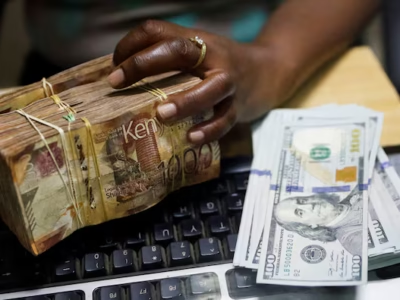Malawi – Malawi’s government is demanding the astonishing sum of US$309 billion in unpaid taxes and royalties from a US-based gemstone company for rubies exported from the country over the last 10 years, its attorney-general has told the BBC.
Columbia Gem House, a family-owned business which said that it upholds fair trade practices, dismissed the claim as “baseless and defamatory.”
The government is also demanding US$4 billion from French gas giant TotalEnergies in unpaid revenue from an oil storage deal, and US$9.5 million from Turkish tobacco firm Star Agritech, said Attorney General Thabo Chakaka Nyirenda.
TotalEnergies declined to comment while Star Agritech denied owing any money. The amount being claimed from the three multinationals is nearly 300 times Malawi’s national debt of around US$1.2 billion and 22 times its Gross Domestic Product (GDP) of $14 billion.
Malawi was forced to take a US$174 million bailout from the International Monetary Fund (IMF) last year after running into financial trouble.
Speaking to the BBC Focus on Africa podcast, Nyirenda said that Columbia Gem House had been under-reporting the value of rubies it had exported from Malawi.
He added that “some of the evidence that we’ll be using comes from Columbia Gem House itself, such as declarations they have made in the US, and what they have reported on their website, which they have now deleted”.
“The amount is not just [for] one year, it goes over 10 years back. It also includes the interest,” Nyirenda said. Columbia Gem House said that the government’s sums do not add up.
The US$309 billion claim “implies Malawi has somehow produced and exported trillions of dollars’ worth of coloured gemstones”, the firm said in a statement.
“They haven’t done this by any stretch of the imagination,” it added. Columbia Gem House said it does not operate in Malawi, but buys its gemstones from Nyala Mines, a Malawian-owned company in which the government has a 10 percent stake.
However, Nyirenda told the BBC that as a minority shareholder, the government was not involved in the day-to-day management of the company, and “the name of Nyala Mines had been changed to disguise its ownership”.
An attempt by the US embassy in Malawi to settle the dispute fell through when the Attorney General failed to attend an online meeting, which he put down to “technical challenges.”
Mining contributes only one percent to Malawi’s GDP, although the government has announced plans to scale this up in the next few years.
Malawian economist Wisdom Mgomezulu said the government may be making the claims now because of its financial difficulties. “They’re looking at all potential sources of income, but if you look at the claim versus the size of the economy, it’s just way too much,” he told the BBC. The dispute with TotalEnergies is rooted in a deal Malawi entered with it in 2001, according to Nyirenda.
The French multinational was to provide fuel to Malawi and was to get tax incentives in return, he said.
The profits from the arrangement were to have been shared equally but TotalEnergies “only paid for two years and stopped paying in 2006,” Nyirenda alleged.
The government has since taken the company to court in Malawi, and Nyirenda said the government wants it to pay US$4 billion to settle the matter.
WARNING! All rights reserved. This material, and other digital content on this website, may not be reproduced, published, broadcast, rewritten or redistributed in whole or in part without prior express permission from ZAMBIA MONITOR.












Comments